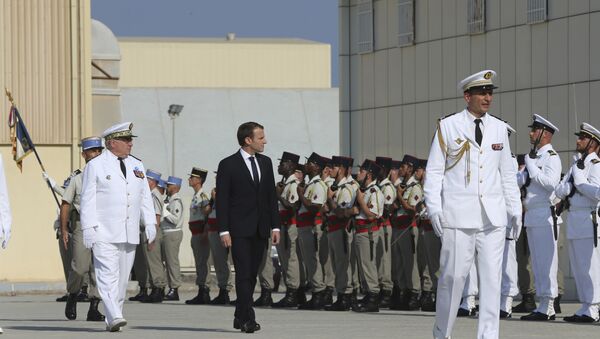Thierry Coville, expert on Iran at the Institute of International and Strategic Relations in France, said that in his opinion, the French President is first and foremost trying to defuse tensions.
According to him, "it is very important for Europeans and French to maintain a nuclear agreement with Iran."
"I see it as a clever move on his part. He tells the Saudis, and ultimately the Americans: let's not touch upon the nuclear agreement [with Tehran], let's focus on what concerns you, namely, Iran's ballistic program and its regional policy," Coville said.
#Macron & Tehran: the French don't want to choose between #Iran and #US (op-ed) https://t.co/qQ9u40sp9b pic.twitter.com/en0OBnjDSA
— Sputnik (@SputnikInt) 12 ноября 2017 г.
He added that if France wants to retain credibility with both countries, it should not pretend that it supports "this or that side."
"It is important to maintain balance. It's not about insulting Saudi Arabia, but at the same time, hostility towards Iran is also irrelevant," Coville pointed out.
He was echoed by former French ambassador to Iran Francois Nicoullaud, who said in an interview with Sputnik that France should clarify its position during talks with Iran.
#Tehran dismissed calls to negotiate its ballistic activities voiced by #Macron https://t.co/TBDUPn7p1W
— RT (@RT_com) 13 ноября 2017 г.
He recalled that the Iranians believe that its ballistic program pertains to the sphere of defense, and that there cannot be any negotiations on this because this is the most important component of Iran's sovereignty.
"[Regarding hegemony in the region], Iran believes that it has a very positive, decisive and even the most important role in maintaining balance and stability of the political situation. […] That is, Iran has something to say to Macron on this issue," Nicoullaud said. \
He warned that the nuclear agreement should "remain in the form in which it currently exists, because it will be too difficult to change it.
"During the negotiations [on the agreement], a very clear and delicate balance was found. If you try to somehow influence this balance, the entire agreement may collapse," Nicoullaud concluded.
During his visit to the United Arab Emirates last Thursday, Macron said that the Iranian nuclear agreement "must be preserved" but "complemented with two pillars."
Putin, Macron Reaffirm Support of Iran Nuclear Deal in Phone Talks: https://t.co/qD2QXGsaSi via @SputnikInt
— Dr.Fatma Ülgen (@fatmaulgen) 3 ноября 2017 г.
In particular, the French President signaled his willingness to renegotiate the question of the "ballistic activity of Iran" and discuss "Iranian hegemony throughout the region."
At the same time, in an interview with Time magazine, Macron criticized Trump for his unconstructive stance on Iran and made it plain that cutting ties with Tehran over the nuclear issue would make it a new North Korea.
READ MORE: Iran Nuclear Deal: Why EU Unlikely to Follow in Washington's Footsteps
In July 2015, the European Union, Iran and the P5+1 group of nations comprised of the United States, Russia, China, France and the United Kingdom plus Germany signed the Joint Comprehensive Plan of Action, commonly known as the Iran nuclear deal.
The document stipulates a gradual lifting of sanctions imposed on Tehran in exchange for guarantees of a peaceful Iranian atomic program.

